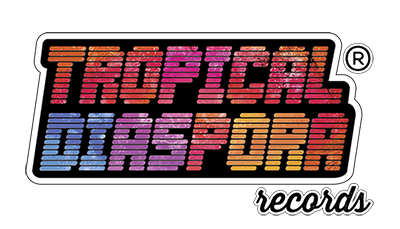My African Tapes – II
The name Pierre Antoine has come up in some recent afro-beat compilations. Born as Ahui Nogaran Marcel in 1951 in the south east part of Ivory Cost—near to the ghanaian border, this Ivorian musician influenced by James Brown encountered afro-beat after having settled down in Ghana in 1977.
One doesn’t come across many examples of Ivorian afro-beat.
Pierre Antoine began to play early in the new trendy scene of Abidjan, in bands like “The Djinahouroux”, “New Système Pop” and founded “Le Fétiches”. He drew his inspiration from international pop music especially french artists like Johnny Hallyday and the singer and hippie Pierre Antoine Muraccioli, known as Antoine. The artistic name Pierre Antoine is a direct tribute to this french artist of whom he liked his long hair and cool style jacket. However, like in many other places of Africa at this time, the biggest influence of all was James Brown. In 1977, for example, Pierre Antoine’s single “Man’s world”, originally interpreted by James Brown, could be heard on the Ivorian national radio. He played in the clubs and bars of the district of Adjamé in Abidjan with “Sanwi Star International”, “Les Fétiches” or “Vis à Vis”.
His successful solo career gave him the opportunity to travel and perform in all the west African countries, such as Ghana, Burkina Faso, Benin and Mali. In 1977, he settled down in Ghana where he encountered a very creative afro-soul scene and started to work with Lola Everett and the guitar player Sammy Cropper among others. His music style changed and Pierre Antoine began to perform under the influence of afro-beat and the panafrican scene. He died suddenly at the age of 42.
Pierre Antoine also created his own music label Ahui records. His first hit was “Say Min Sy Soh”, a deep afro-beat and afro-funk style tune with great vocals.
httpvh://www.youtube.com/watch?v=GIifrs0ShWc
In 1977 Pierre Antoine released “Kalabuley Woman” with the “Vis à Vis” band on Abidjan’s famous label Papa-Disco, featuring Sammy Cropper as lead guitar and Lola Everett on vocals. Both the title track and “Ye Man Noun” feature the characteristic looping rhythms of Fela Kuti, making this record one of the best afro-beat albums ever.
httpvh://www.youtube.com/watch?v=OBySY0JsYiY
I don’t want to miss the chance of playing a magnificent song by another Ivorian, the iconic François Lougah, whose nickname was “Papa National”. What Fela Kuti was for Pierre Antoine, it was Manu Dibango for Lougah. I leave you with his release form 1977 “Bravo Sotra”. Enjoy it!
httpvh://www.youtube.com/watch?v=SbaNNFda6z4



Social